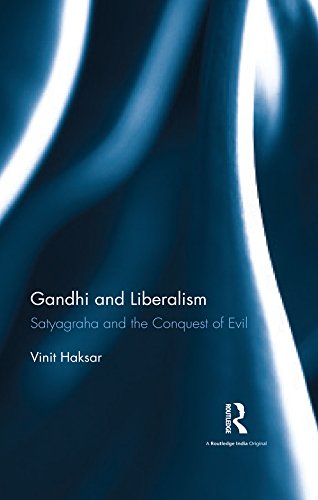The word ‘evil’ is generally avoided by contemporary writers. Or it is reserved for deeds that almost everyone can unhesitatingly condemn. Nonetheless it is an accepted synonym for ‘wrongs’ or ‘wrong’ and an antonym for ‘good’ or ‘right’, even if others would rather use ‘wrong’, ‘iniquity’ or ‘injustice’. Along with two other significant words, Vinit Haksar employs ‘evil’ in the title of this important book on Gandhi’s thought.
One reason why Gandhi attracts attention is his view that evil exists inside of us too. That view is also why he invites opposition. Gandhi rings a bell because the unfairness of our world stings us and because we are pricked also by our own shortcomings. We know that Gandhi fought his internal devils as spiritedly as he opposed the Empire. Even if we sharply disagree with him here and there, we too would like to overcome—‘conquer’—wrongs both inside and outside of us.
Clinging to the truth—‘satyagraha’—was Gandhi’s weapon for both battles. When we convince ourselves that as individuals or communities (as Hindus, or Indians, or Muslims, or Sikhs, or Arabs, Jews or whatever) we are just fine, and that evil only exists in others or other communities, Gandhi’s truth becomes hostile to us.
Haksar’s study, however, does not address Gandhi’s foes. It seems to be meant for those who see satyagraha as a legitimate response to evil but find contradictions in Gandhi’s exposition of satyagraha. Viewed on the one hand as coercive or disruptive, satyagraha has also been faulted, given Gandhi’s stress on ahimsa, for being too weak against powerful oppressors.

